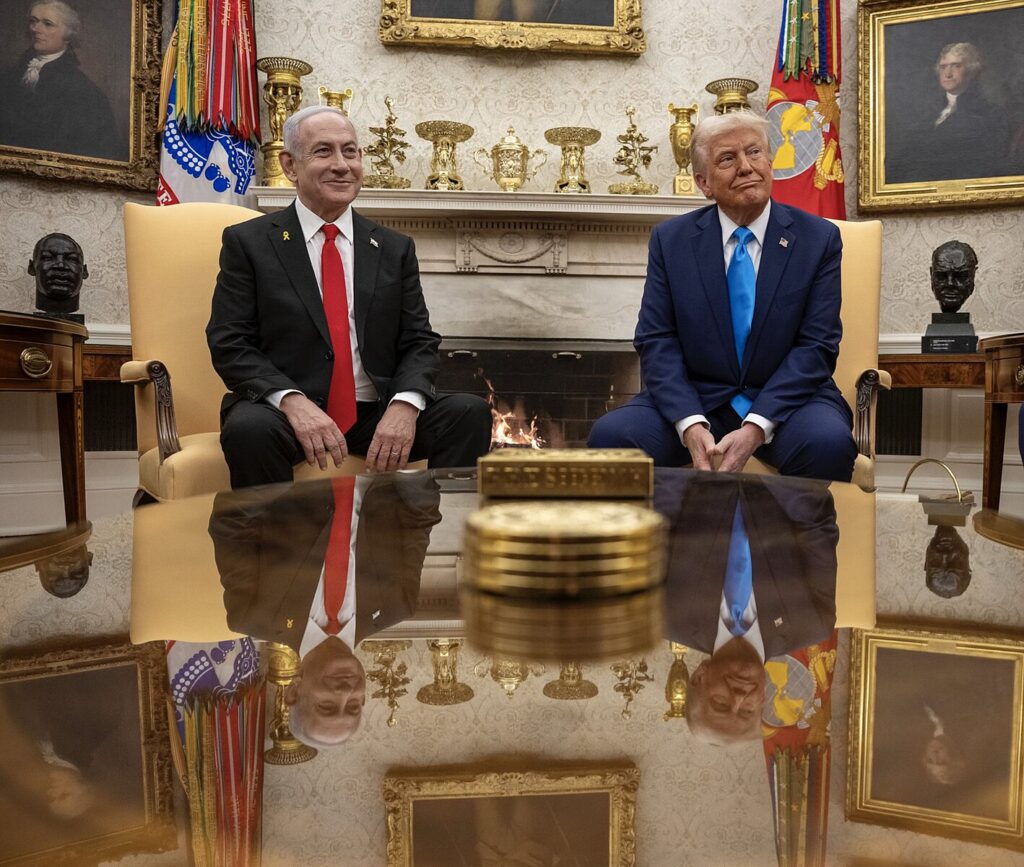Netanyahu Returns to War in Gaza to Implement Trump’s Ethnic Cleansing Plan

By: Ghassan Rubeiz / Arab America Contributing Writer
Prime Minister Netanyahu has resumed the fighting in Gaza to re-occupy Gaza and pursue the elimination of Hamas. Israel’s renewed war strategy aims at starving the people of the enclave while pummeling their fighters with new bunker-busting bombs, which President Trump had sent to Israel with a message to “give them hell.”
The assault on Gaza is overseen by a new army chief who seems to have no concern for collateral damage to civilians. Last week’s resulting fatalities were over six hundred people, mostly civilians; the toll of Gazans killed since the war started in October 2023 has surpassed 50,000, and the number of wounded exceeds 123,000.
Netanyahu must realize that reoccupying Gaza would make him responsible for running the enclave. He should also be aware that he could not restore living conditions or reestablish law and order in the territory.
That seems to indicate that the Israeli prime minister must be taking President Trump’s plan seriously to turn Gaza into a resort by relocating its population. Increasingly, some high-level US and Israeli officials have found the idea of ethnic cleansing agreeable, with the logistics of displacement disguised as a humanitarian solution for a desperate population trying to survive in unlivable conditions.
Reports that Gazans might be removed “voluntarily” to Somaliland in the Horn of Africa sound like fake news, but they are not. Alleged Israeli-based polls revealing that 50% of Gazans and West Bankers would be willing to leave Gaza for another destination are questionable for accuracy. The accuracy of such data is less perturbing than the ominous fact that the ethnic cleansing of Palestinians is active, transparent, and supported by Washington. Poll: Half of Gaza Residents Are Ready to Leave if Given the Chance | United with Israel
The sad reality is that many in Israel do not feel morally responsible for the carnage inflicted on Gazans. Emotions underlie perceptions. The gruesome acts of Hamas on October 7, including the unconscionable hostage-taking, have turned the majority of Israelis into hard-to-reach enemies of Hamas and its backers. For them, any form of support for Palestinian resistance is perceived as antisemitism. To appreciate how defensive Israelis are vis-a-vis the critics of Israel, Abel B. Bibliowicz’s essay provides a sample of political rationalization.
The ongoing war in Gaza, which has been by far the longest Arab-Israeli war, has desensitized Israelis against the idea of living near or with Palestinians. Regrettably, such high levels of social distancing and polarization have predisposed many in Israel to think of getting rid of Palestinians at any cost.
Cooler heads in Israel can see the political and moral cost of expanding the occupation of Palestinian territories. Domestic opposition to the war keeps growing, even within the armed forces. The international community is alarmed. The Arab world cannot believe how far Israel has gone in its aggression.
Annexing Gaza after ethnic cleansing would strengthen the Israeli settlers’ movement, a political community that has normalized acts of terror against innocent civilians in the West Bank and East Jerusalem. The settlers’ movement has created a militia culture that undermines the authority of the state and reinforces the animus of discrimination against all Palestinians, including Israel’s sizable Palestinian minorities inside the 1948 borders.
Failure in Gaza could lead to civil war in Israel. Opening Gaza for Israeli settlers would deepen the existing rift between religious and secular Zionists, as the former group is more eager to create new settler communities.
Another impact of an ethnically cleansed Gaza would be the political future of two million Palestinians banished to a host country that is likely to be itself unstable—too unstable to allow such a massive influx of dispossessed migrants. Moving people out of Gaza could raise the levels of instability in the region and beyond.
Mediators from the US and the Arab world are still trying to salvage the Gaza ceasefire talks. Hopeful surprises may emerge in time to stop Israel’s rush toward the unknown and unexpected.
The return to war in Gaza is tantamount to continuing combat without a strategy. Israel has no sound planning for the day after the hostilities end. The consequences of the war in Gaza will not change the futile character of the broader Arab-Israeli conflict. There is no better alternative to a political solution that is centered on co-existence between Palestinians and Israelis.
Ghassan Rubeiz is the former Middle East Secretary of the World Council of Churches. Earlier, he taught psychology and social work in his country of birth, Lebanon, and later in the United States, where he currently lives. He has contributed to political commentary for the past twenty years and delivered occasional public talks on peace, justice, and interfaith subjects. You can reach him at rubeizg@gmail.com
The views and opinions expressed in this article are those of the author and do not necessarily reflect the position of Arab America. The reproduction of this article is permissible with proper credit to Arab America and the author.
Want more articles like this? Sign up for our e-newsletter!
Check our blog here!








